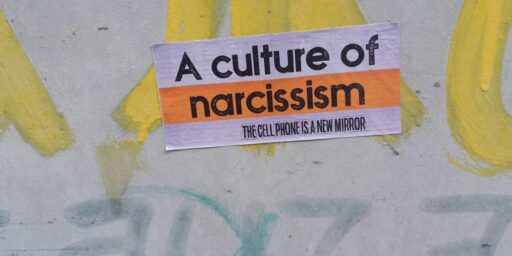In recent years, the term “woke” has gained significant attention in our society. It is often associated with an awareness of social injustices and a desire for change. However, as Christians, we must carefully examine the ideology of woke Christianity and its compatibility with our faith. While the pursuit of justice is commendable, we must ensure that our beliefs align with the teachings of Scripture. In this article, we will explore the errors of woke Christianity and emphasize the importance of remaining faithful to the truth of God’s Word.
Understanding Woke Christianity
To fully grasp the errors of woke Christianity, we must first understand its ideology. The term “woke” originally emerged as a descriptor for individuals who were alert to societal injustices, particularly racism. However, over time, it has evolved into an authoritarian worldview that seeks to deconstruct the foundations of our Christian faith. “Wokeism” often tempts Christians to adopt ideologies that contradict the teachings of Scripture, prioritizing human philosophies over the absolute truth of God’s Word.
The Dangers of Woke Ideologies
While the pursuit of justice and equality is crucial, the dangers of woke ideologies lie in their departure from biblical truth. “Wokeness” tends to prioritize feelings and personal experiences over objective truth, making it susceptible to subjective interpretations and moral relativism. Instead of relying on the unchanging truth of Scripture, woke Christianity embraces ever-shifting cultural norms and human traditions. This departure from God’s Word ultimately undermines the authority of Scripture and compromises the integrity of our faith.
The Influence of Historical Philosophers
To understand how woke ideologies infiltrated our society, we must examine the influence of certain historical philosophers. Karl Marx, Friedrich Nietzsche, and Sigmund Freud played significant roles in shaping the foundations of woke thinking. Marx, an atheist, sought to deconstruct Christianity and promote a worldview based on the oppressor-oppressed dichotomy. Nietzsche, on the other hand, propagated a belief in the power dynamics of life, rejecting the existence of objective truth. Freud’s theories further contributed to the post-modernist turn, where all truth is considered relative. These philosophers laid the groundwork for the ideologies embraced by woke Christianity today.
The Biblical Worldview
In contrast to woke Christianity, the biblical worldview offers a solid foundation for our faith. Scripture teaches us that our identity is found in Christ, not in societal labels or human philosophies. Through Christ’s sacrifice, we are adopted as children of God, with inherent worth and value (Galatians 4:7). Moreover, the Bible instructs us to take every thought captive to the obedience of Christ (2 Corinthians 10:5). This means evaluating ideas and ideologies in light of God’s Word and discerning their alignment with biblical truth.
The Importance of Truth
One of the fundamental errors of woke Christianity is its dismissal of absolute truth. In John 8:31–32, Jesus declares that those who hold to His teachings will know the truth, and the truth will set them free. As Christians, we believe that God’s Word is the ultimate source of truth. It is unchanging and provides a solid foundation for our faith. Woke ideologies, on the other hand, tend to embrace relativism, where truth is considered subjective and varies from person to person. This departure from objective truth undermines the authority of Scripture and leads to moral confusion.
Balancing Justice and Faithfulness
While woke Christianity claims to champion justice and equality, it is essential to balance these pursuits with faithfulness to God’s Word. Scripture repeatedly emphasizes the importance of justice and caring for the marginalized (Micah 6:8, Isaiah 1:17). However, justice must be pursued within the boundaries of biblical truth. Woke ideologies often prioritize specific social issues at the expense of biblical teachings. As Christians, we must strive to address injustices while remaining faithful to the unchanging principles outlined in Scripture.
The Pitfalls of Moral Relativism
Moral relativism is a prominent feature of woke ideologies, rejecting the existence of objective moral truths. However, as Christians, we believe in the absolute moral standards set forth by God. The Bible clearly defines right and wrong, providing a framework for ethical decision-making. When we embrace moral relativism, we risk compromising our faith and succumbing to the cultural trends of the world. It is crucial to anchor ourselves in the unchanging truth of God’s Word, resisting the allure of moral relativism.
The Call to Faithfulness
In a world that constantly promotes shifting ideologies and cultural norms, Christians are called to remain faithful to God’s Word. The apostle Paul exhorted the Colossians to be vigilant against hollow and deceptive philosophies, ensuring that they remained rooted in Christ (Colossians 2:8–9). To combat the errors of woke Christianity, we must diligently study Scripture, allowing it to shape our beliefs and guide our actions. Faithfulness to God’s Word enables us to discern truth from falsehood and stand firm in our convictions.
Conclusion
As Christians, it is essential to critically evaluate the ideology of woke Christianity and its compatibility with our faith. While the pursuit of justice is commendable, we must ensure that our beliefs align with the teachings of Scripture. The errors of woke Christianity lie in its departure from biblical truth, prioritizing human philosophies and moral relativism over the unchanging truth of God’s Word. By remaining faithful to Scripture and balancing justice with faithfulness, we can navigate the complexities of our world while upholding the integrity of our faith. Let us strive to be faithful followers of Christ, committed to the pursuit of justice and the unwavering truth of God’s Word.








